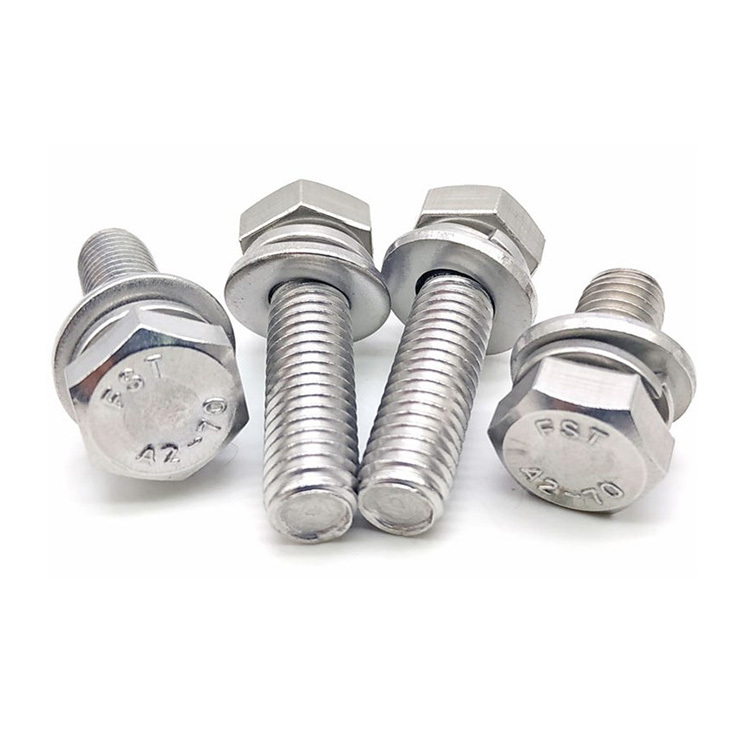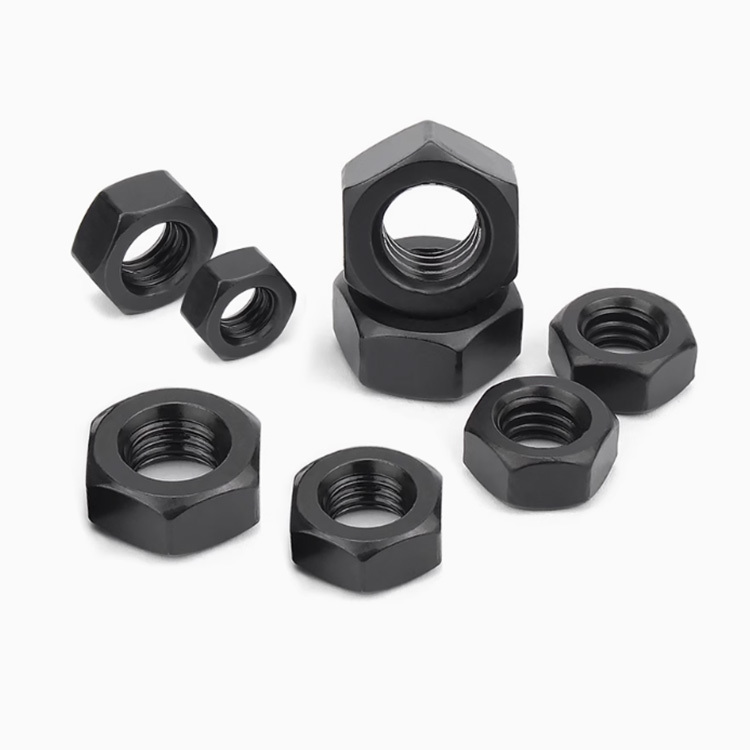Understanding Hexagon Socket Bolts: An Essential Component in Industrial Fastening
Feb 24,2025
Hexagon socket bolts, often referred to as Allen bolts, are a type of fastener characterized by a hexagonal recess in their heads, allowing them to be driven with an Allen wrench or hex key. These bolts are widely utilized across various industries due to their strength, ease of use, and versatility. Understanding the features and applications of hexagon socket bolts can significantly enhance your
Hexagon socket bolts, often referred to as Allen bolts, are a type of fastener characterized by a hexagonal recess in their heads, allowing them to be driven with an Allen wrench or hex key. These bolts are widely utilized across various industries due to their strength, ease of use, and versatility. Understanding the features and applications of hexagon socket bolts can significantly enhance your fastening solutions.
One of the primary advantages of hexagon socket bolts is their design, which allows for greater torque application compared to conventional fasteners. The internal hexagon shape enables a more efficient grip from the tool, reducing the likelihood of cam-out during assembly. This characteristic makes them particularly useful in high-tension applications where secure fastening is critical.
Hexagon socket bolts are commonly made from various materials, including steel, stainless steel, and even plastic. The choice of material often depends on the specific application environment. For instance, stainless steel provides excellent corrosion resistance, making it ideal for outdoor or marine applications. On the other hand, carbon steel bolts offer superior strength but may require protective coatings to prevent rusting.
In terms of sizing and threading, hexagon socket bolts are available in a wide range of dimensions, ensuring compatibility with various components. It is essential to match the bolt size with the corresponding nut or threaded hole to achieve optimal fastening. Additionally, the threading can be coarse or fine, with fine threads providing better torque and resistance to loosening.
When installing hexagon socket bolts, using the correct tool is crucial. An appropriately sized Allen wrench will fit snugly into the hexagonal recess, providing maximum torque without damaging the bolt. It is also advisable to follow proper torque specifications to avoid over-tightening, which can lead to deformation and potential failure of the bolt.
Maintenance of hexagon socket bolts is another vital aspect to consider. Regular inspection for signs of wear, rust, or damage can help prevent catastrophic failures in machinery or structures. If any issues are identified, it is recommended to replace the bolts promptly to ensure continued safety and reliability.
In conclusion, hexagon socket bolts are an integral part of industrial fastening systems, offering numerous benefits that enhance the performance of various applications. Their unique design, coupled with a range of materials and sizes, makes them a versatile choice for engineers and technicians alike. Understanding their characteristics and appropriate usage can lead to improved efficiency and safety in your fastening processes.
One of the primary advantages of hexagon socket bolts is their design, which allows for greater torque application compared to conventional fasteners. The internal hexagon shape enables a more efficient grip from the tool, reducing the likelihood of cam-out during assembly. This characteristic makes them particularly useful in high-tension applications where secure fastening is critical.
Hexagon socket bolts are commonly made from various materials, including steel, stainless steel, and even plastic. The choice of material often depends on the specific application environment. For instance, stainless steel provides excellent corrosion resistance, making it ideal for outdoor or marine applications. On the other hand, carbon steel bolts offer superior strength but may require protective coatings to prevent rusting.
In terms of sizing and threading, hexagon socket bolts are available in a wide range of dimensions, ensuring compatibility with various components. It is essential to match the bolt size with the corresponding nut or threaded hole to achieve optimal fastening. Additionally, the threading can be coarse or fine, with fine threads providing better torque and resistance to loosening.
When installing hexagon socket bolts, using the correct tool is crucial. An appropriately sized Allen wrench will fit snugly into the hexagonal recess, providing maximum torque without damaging the bolt. It is also advisable to follow proper torque specifications to avoid over-tightening, which can lead to deformation and potential failure of the bolt.
Maintenance of hexagon socket bolts is another vital aspect to consider. Regular inspection for signs of wear, rust, or damage can help prevent catastrophic failures in machinery or structures. If any issues are identified, it is recommended to replace the bolts promptly to ensure continued safety and reliability.
In conclusion, hexagon socket bolts are an integral part of industrial fastening systems, offering numerous benefits that enhance the performance of various applications. Their unique design, coupled with a range of materials and sizes, makes them a versatile choice for engineers and technicians alike. Understanding their characteristics and appropriate usage can lead to improved efficiency and safety in your fastening processes.
TAG:
Contact Us
Address
Yongnian District, Handan City, Hebei Province, China



